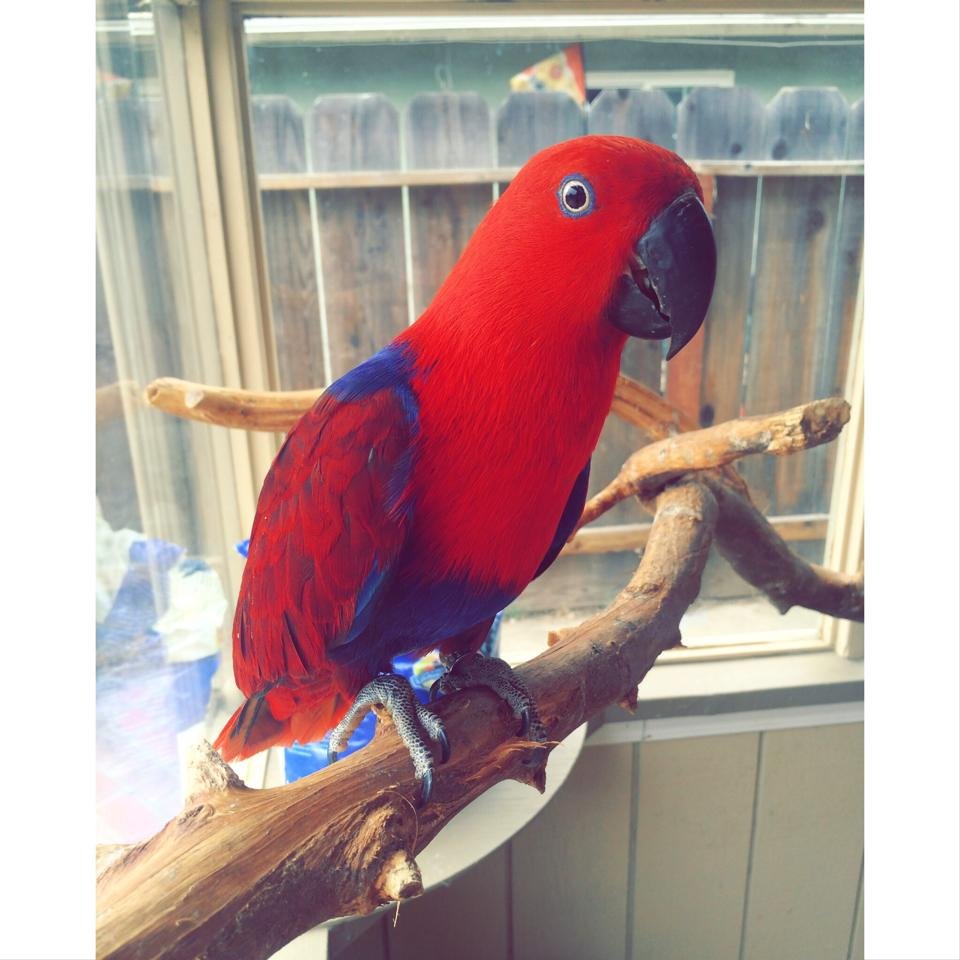Red Sided Eclectus
Length: 33-37 cm
Weight: 470–525 gm
Banded: Yes
DNA Sex: Males/Females
Original price was: 1,300.00$.1,200.00$Current price is: 1,200.00$.
Description
Description
The Red-sided Eclectus– also known as New Guinea Eclectus Parrot – is one of the most popular parrot species kept by aviculturists and one big reason is their spectacular, bright-colored plumage and gentle, friendly personalities.
The Red-sided Eclectus is the most common of the nine eclectus subspecies, both in captivity and in the wild.
Red-sided Eclectus Parrots are native to the large island of New Guinea and the surrounding island.
They are medium-sized parrots, averaging 14 inches or 35 cm in length (including the tail) and weigh between 16 – 19 oz (470 – 525 grams). The Red-sided Eclectus is slightly larger than the Grand Eclectus, slightly smaller than the Vosmeari Eclectus, and considerably larger than the Solomon Island Electus.
Red-sided Eclectus as pets
Even though generally quiet, these parrots have very loud, shrill calls, which can be heard when they are excited or alarmed, or when trying to make contact with their family (which could be a family member, another bird, etc.). They may not be the right pet for those sensitive to noise.
They do make good pets for people who will tolerate the occasional noise and are willing to adequately care for them.
Eclectus parrots are among the top three “talking” parrots. They rival the talented African Grey and Amazon Parrots in terms of clarity of speech and vocabulary. Some even learned entire songs. Red Sided Eclectus parrots usually have sweet, female or childlike voices. Even though the talent varies, most Eclectus do learn at least a few words.
Life Expectancy and Health
They usually live up to 30 – 40 years, but there is no reason why they can’t live 50 to 75 years like other parrots of comparable size – provided good nutrition and care is provided. They gain maturity when they are about 3 years old.
The most common health problem of these parrots is associated with malnutrition (including feather picking and respiratory infections) as they need a higher percentage of fruits in their die compared to other parrots. The most common vitamin deficiency is Vitamin A, and they need a good amount of produce that is rich in this vitamin, such as carrots, squash, broccoli, kale and cooked sweet potatoes. Joseph M. Forshaw in “Parrots of the World” wrote, “Eclectus Parrots feed on fruits, nuts, seeds, berries, leaf buds, blossoms and nectar procured in the treetops.” For good health, a healthy captive diet should be as close to their natural diet as possible.





Reviews
There are no reviews yet.